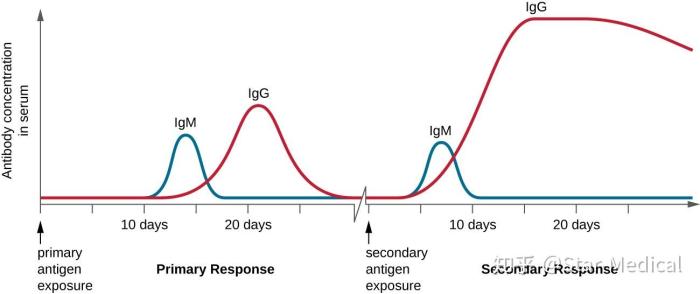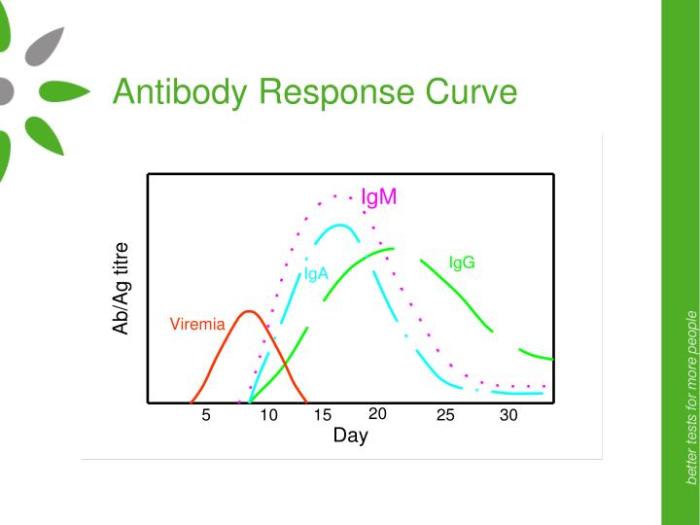Immunodeficiencies are a result of all of the following except for a complex interplay of genetic, environmental, and lifestyle factors. Understanding the diverse causes that contribute to immunodeficiencies is crucial for developing effective diagnostic and therapeutic strategies.
This comprehensive guide delves into the multifaceted nature of immunodeficiencies, exploring the intricate mechanisms by which various factors can impair immune function and lead to increased susceptibility to infections and diseases.
Causes of Immunodeficiencies: Immunodeficiencies Are A Result Of All Of The Following Except

Immunodeficiencies arise from a multitude of causes, impairing the immune system’s ability to defend against pathogens and maintain overall health. These causes can be broadly categorized into genetic, environmental, nutritional, lifestyle, autoimmune, infectious, and age-related factors.
Genetic Factors
Inherited genetic defects play a significant role in the development of immunodeficiencies. Mutations in specific genes disrupt the proper development and function of immune cells, leading to impaired immune responses. Examples include:
- Severe combined immunodeficiency (SCID)
- X-linked agammaglobulinemia
- DiGeorge syndrome
Environmental Factors
Exposure to environmental toxins, radiation, or certain infections can weaken the immune system. For instance:
- Exposure to heavy metals, such as lead and mercury, can suppress immune cell function.
- Radiation therapy for cancer treatment can damage immune cells and impair immune responses.
- Infections with viruses, such as HIV, can weaken the immune system and lead to opportunistic infections.
Nutritional Deficiencies, Immunodeficiencies are a result of all of the following except
Proper nutrition is essential for a healthy immune system. Deficiencies in specific nutrients, such as vitamins A, C, and D, as well as zinc and iron, can impair immune function. For example:
- Vitamin A deficiency can lead to impaired antibody production and reduced immune cell activity.
- Zinc deficiency can disrupt immune cell signaling and reduce the production of antimicrobial peptides.
Lifestyle Factors
Lifestyle choices can significantly influence immune function. Factors such as smoking, alcohol consumption, and lack of physical activity can impair immune responses:
- Smoking damages immune cells and reduces the production of antibodies.
- Excessive alcohol consumption can suppress immune cell function and increase susceptibility to infections.
- Lack of physical activity can weaken the immune system and reduce its ability to fight off infections.
Autoimmune Disorders
Autoimmune disorders arise when the immune system mistakenly attacks the body’s own tissues. This disruption of immune tolerance can lead to immunodeficiencies:
- Rheumatoid arthritis can damage immune cells and impair their ability to respond to infections.
- Systemic lupus erythematosus (SLE) can cause inflammation that affects immune cell function and reduces antibody production.
Infections
Certain infections can cause or contribute to immunodeficiencies. For instance:
- HIV infection destroys CD4+ T cells, leading to a severe immunodeficiency known as AIDS.
- Chronic hepatitis B and C infections can impair immune cell function and increase the risk of developing liver cancer.
Aging
The immune system undergoes age-related changes that can contribute to immunodeficiencies. With advancing age:
- Immune cell production and function decline.
- The ability to respond to new infections is reduced.
- The risk of developing autoimmune disorders and certain cancers increases.
Questions Often Asked
What are the most common causes of immunodeficiencies?
Genetic defects and environmental factors, such as exposure to toxins or infections, are the most common causes of immunodeficiencies.
Can lifestyle factors contribute to immunodeficiencies?
Yes, smoking, alcohol consumption, and lack of physical activity can weaken the immune system and increase the risk of developing immunodeficiencies.
How does aging affect the immune system?
Aging leads to a decline in immune function, making older individuals more susceptible to infections and immunodeficiencies.

